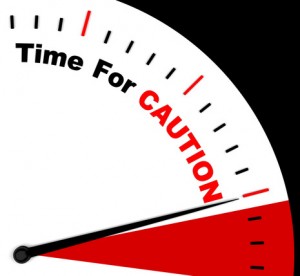
Unfortunately, that’s not how things always work out in the messy world of free enterprise.
There are a lot of shady doings online, and if you want to keep your reputation as a writer, you need to stay away from scammy situations.
Some scams arise out of deliberate greed on the part of the clients. Others come about due to utter ignorance of journalistic and scholarly ethics.
Here are three common writing assignments that are, shall we say, ethically challenged?
I recommend you stay away from these:
1. Essays for college students
Most writers know this is just not cool. But in case you don’t, as the mother of a college student, let me assure you that parents and university professors would really, really like students to write their own papers.
It’s dishonest to buy papers online and then pretend they are your own work. The student could be expelled for cheating if they use that school paper they buy online from that assignment-mill. These places are constantly out promoting and trying to recruit more writers to this shady side of the freelance street…for example, dig this guest-post pitch I got just a few days ago:
I’m Alex, I work for <URL of essay mill website>, We can write a blog post “how custom essay writers earn money“. I’ll cover all the processes inside our organization to make your readers familiar with this particular type of work for writers. Please, tell me what you think about such topic for your blog.
As a kicker, this work doesn’t tend to pay very well, so hopefully it won’t be too hard to give it a pass.
2. Paid reviews of things you’ve never used
Has this happened to you? I’m finding this sleazy deal popping up more often lately. Startups and businesses of all stripes are desperate to rack up favorable reviews on popular portals such as Amazon, TripAdvisor, or Yelp.
In case you think nobody would be crazy enough to ask you to make up a review of something you know nothing about, here’s a screen shot of a recent LinkedIn query I got:
I hope it goes without saying that becoming a writer who posts made-up reviews around the Internet is not going to help you build a lucrative writing career. Just steer clear.
3. Pitching magazines your copywriting client
Many companies are unaware of journalistic ethics, and will ask to hire you to write for them. But what they’d like you to do is pitch a big magazine you’ve been writing for a great idea — that you’ve discovered a great business to profile…your new client’s business.
I got this one twice last week alone. Here’s a taste from one of the emails (names and details removed to protect the guilty):
“I came across an article you wrote for X Magazine. I wondered if the company for which I’m now working could pay your fees to write an article [for that magazine] that mentions them. The company is Y. The company has grown 20% each year. They need/deserve some publicity!”
Saying “yes” to this one is a great way to find yourself never writing for that magazine again, after they realize you failed to mention that the subject of your “great idea” for an article is in fact a paying client of yours.
In the world of journalism, this is called conflict of interest. It is lying by omission.
When a company hires you to write for them, then you are on their PR team. When you approach magazines, you must disclose that fact, or you are a liar.
You can decide to pitch an article as a reporter, about a company you find interesting. Or you can get paid by that business to write things for them — articles, web copy, white papers, you name it.
But you can’t do both at once.
You could pitch a magazine that another reporter should write about your client — that’s a PR activity. Or you could offer a magazine an article by your CEO that you’ve ghostwritten, for which you will be paid by the company. In this scenario, the magazine will usually not pay the company anything — it’s a free piece the CEO wants to get published to promote the company, and everybody’s clear on that.
Even after you’re done getting paid to write for that business client, if you want to mention or quote that former client in an article, you need to disclose it to your editor and get their OK.
It may seem tempting to try to get double-paid — by both a business and a magazine — for the same article. But trust me, it won’t be worth it when you’re found out and banned from the publication.
Got other writing ethics questions? Ask them in the comments below. Or consider attending 4-Week Journalism School — we spend a whole week on how to avoid getting fired or sued over what you write. Class begins Wednesday.











